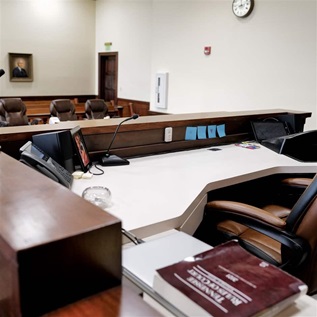Pew Announces New Investment to Prevent Irresponsible Subprime Mortgage Practices
Philadelphia, PA — The Pew Charitable Trusts announced a new effort today to protect American families from dangerous “exploding” subprime mortgages linked to the current record number of home foreclosures. With a two-year investment of $1 million to the Center for Responsible Lending, Pew seeks to curb abusive subprime home loans by strengthening underwriting standards, including verifying a borrower's income and making sure that borrowers have the ability to repay the mortgage after scheduled increases in the loan's interest rate.Pew announced its initiative as federal banking and credit union regulators are poised to issue final guidance on the steps depository institutions and their affiliates need to take to ensure borrowers will be able to repay their debt. However, more than half of subprime mortgages are issued by lenders not subject to these federal standards. With Pew's support, the Center for Responsible Lending will work to protect all subprime borrowers by urging other federal and state policy makers with jurisdiction and industry leaders to adopt basic, much-needed standards.
“American families have plenty of financial pressures facing them today and now too many have also fallen victim to mortgage schemes that can leave them broke or homeless, or both,” said Tobi Walker, Pew officer in Health and Human Services Policy.
Today's announcement marks the third major project launched by Pew in its growing effort to promote American family financial security. In 2004, Pew launched the Retirement Security Project through a grant to Georgetown University to identify policies that make it easier for Americans to save for retirement. The project has been instrumental in promoting Automatic 401(k) policies and is now championing creation of Automatic IRAs. In 2005, Pew initiated the Project on Student Debt at The Institute for College Access and Success to help students and their families avoid unmanageable student debt burdens, prevent unnecessary borrowing and borrow more wisely. The project is on the leading edge of policy efforts to promote industry and federal reforms.
“All borrowers deserve protection from abusive mortgage practices,” said Martin Eakes, CEO of the Center for Responsible Lending. “Working with consumer advocates, civil rights leaders and others, we will urge the Federal Reserve, Congress, state regulators and industry leaders to end the subprime mortgage practices that are robbing Americans of their homes and financial security.”
The Pew Charitable Trusts is driven by the power of knowledge to solve today's most challenging problems. Pew applies a rigorous, analytical approach to improve public policy, inform the public and stimulate civic life. We partner with a diverse range of donors, public and private organizations and concerned citizens who share our commitment to fact-based solutions and goal-driven investments to improve society.
Pew is no longer active in this line of work, but for more information visit the Subprime Mortgages Project on PewHealth.org.











